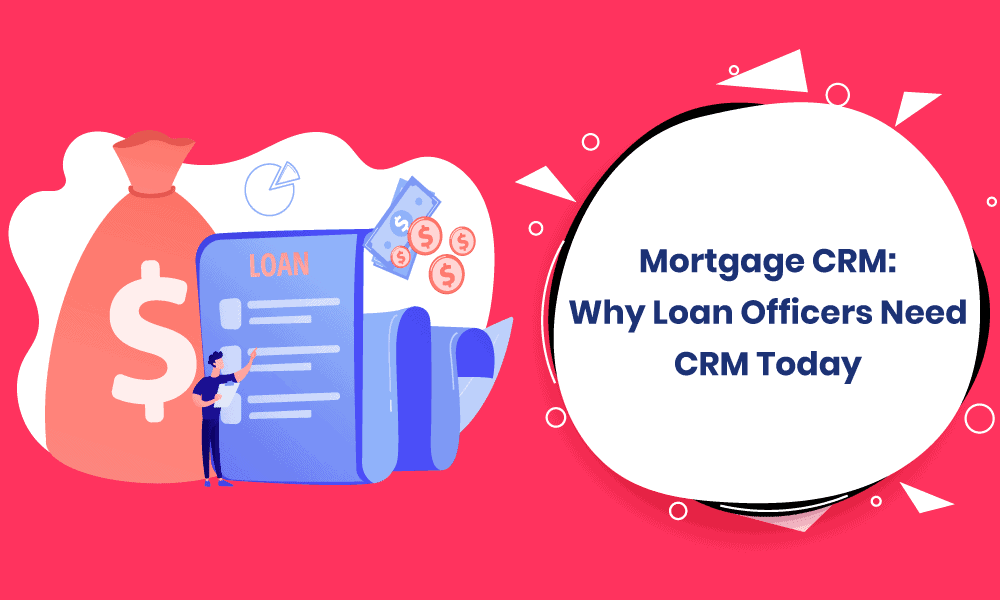In the mortgage industry, success hinges on managing relationships, nurturing leads, and providing a seamless borrower experience. As lending becomes increasingly competitive and digitally driven, mortgage companies are turning to Customer Relationship Management (CRM) systems to gain an edge. A CRM for mortgage companies is more than a database—it’s a strategic tool designed to automate tasks, enhance client communication, and drive revenue growth.
Whether you’re a mortgage broker, loan officer, or lender, adopting a specialized CRM can significantly improve how you engage with prospects, handle documentation, and close loans faster.
Why Mortgage Companies Need a CRM
Unlike general sales organizations, mortgage firms deal with complex, high-stakes transactions that involve multiple touchpoints, sensitive documentation, and strict regulatory oversight. A dedicated mortgage CRM helps manage this complexity by centralizing data and automating routine processes.
Key Benefits of a Mortgage CRM:
-
Lead Management: Capture, categorize, and follow up with leads more effectively.
-
Pipeline Visibility: Track borrowers through every stage—from pre-qualification to post-closing.
-
Automated Communication: Send timely emails and SMS updates, reducing manual follow-up.
-
Document Tracking: Organize and access important forms, disclosures, and verifications.
-
Compliance Support: Maintain audit trails and ensure communication logs are secure and compliant.
-
Referral Management: Keep track of partners, such as real estate agents or financial advisors, to nurture ongoing relationships.
Essential Features in a Mortgage CRM
To serve the specific needs of the mortgage industry, a CRM should offer more than generic contact management. Here are the top features to look for:
1. Loan Pipeline Tracking
Visualize your loan pipeline with customized stages such as application, processing, underwriting, approval, and closing. This helps prioritize high-value deals and identify bottlenecks.
2. Pre-Built Mortgage Templates
Use email and SMS templates tailored for mortgage professionals—for reminders, approval updates, rate changes, and document requests.
3. Integration with LOS & Other Tools
A good mortgage CRM integrates seamlessly with Loan Origination Systems (LOS), credit checking tools, e-signature platforms, and accounting software.
4. Mobile Access
Loan officers working in the field need mobile-friendly CRMs to access contact info, update status, and communicate with borrowers anytime, anywhere.
5. Automated Workflows
Trigger automatic reminders, emails, and task assignments based on borrower behavior or loan stage progression.
6. Referral & Partner Tracking
Manage a database of real estate agents, attorneys, and referral sources, tracking who sends leads and monitoring conversion performance.
Best CRM Options for Mortgage Companies
Several CRM platforms are either purpose-built for mortgage businesses or offer strong mortgage-specific customizations. Here are a few top choices:
1. Jungo
-
Built on Salesforce.
-
Tailored specifically for mortgage and real estate professionals.
-
Offers borrower and referral partner management, automated campaigns, and compliance support.
2. Surefire CRM by Top of Mind
-
Designed for mortgage lenders.
-
Offers dynamic marketing automation, lead nurturing, and personalized messaging.
3. BNTouch
-
All-in-one CRM and marketing platform for mortgage professionals.
-
Offers SMS, email, video marketing, and LOS integration.
4. Whiteboard CRM
-
Created by mortgage professionals for loan officers.
-
Provides pipeline management, pre-written campaigns, and daily task tracking.
5. Shape CRM
-
Versatile platform with a mortgage-specific version.
-
Includes lead scoring, email/SMS automation, reporting, and LOS integrations.
How to Choose the Right Mortgage CRM
When selecting a CRM for your mortgage business, consider the following:
-
Ease of Use: Will your team adopt it easily?
-
Customization: Can you tailor workflows to your loan process?
-
Integration Capabilities: Does it work with your current LOS and communication tools?
-
Automation Tools: Can it help reduce manual work and improve follow-ups?
-
Compliance Readiness: Is it secure and capable of maintaining detailed audit logs?
-
Scalability: Will it grow with your business as you add more users or branches?
Conclusion
A CRM for mortgage companies isn’t just a tech upgrade—it’s a strategic investment in efficiency, compliance, and customer experience. By automating communication, organizing complex borrower data, and managing relationships with precision, mortgage CRMs empower lenders to close more loans faster and deliver a better experience from application to funding.
In a market where trust and speed are everything, a reliable mortgage CRM can make all the difference between lost opportunities and lifelong clients.

